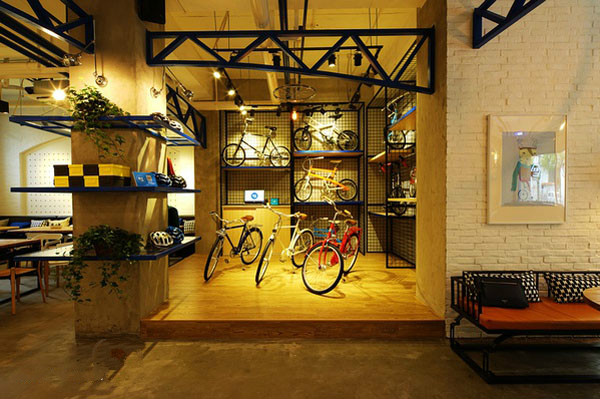Exploring the secret of the world's most expensive coffee in Bali Coffee the world's most expensive coffee cat shit
If at this moment, there is a cup of coffee made from a special cat poop, placed in front of you, do you have the courage to try? As one of the most expensive coffee in the world, the famous Indonesian coffee "kopi luwak" is made from the local civet excrement as a raw material. In Bali, Indonesia, my friends and I had the privilege of visiting a coffee plantation in Ubu, walking into the living environment of civets and spying on the secret of what is known as the most expensive coffee in the world.
Not easy to get
"kopi luwak", alias "Kopi Luwak" and "civet coffee", "kopi" means coffee in Indonesian, and "luwak" refers to the wild cat civet that grows in Indonesia. "Kopi Luwak", as the name implies, is that civets like to eat the best-growing coffee fruit. When they digest the soft flesh with a soft skin, the hard core, namely coffee beans, is excreted "intact" through its digestive system. People collect these feces, which are washed, dried, roasted and other complex procedures to make coffee with a unique flavor. As wild civets live only in Indonesia's Bali, Java, Sumatra and other islands, real "Kopi Luwak" is extremely rare, with the world producing no more than 400kg a year. Therefore, the "Kopi Luwak", also known as Golden Coffee, is one of the most expensive coffee in the world. A bag of 50 grams of pure "Kopi Luwak" beans is currently worth about 1500 yuan and can only be soaked in 3-4 cups. The price of an ordinary "Kopi Luwak" in domestic coffee shops is also about 200 yuan per cup. At the 2010 Shanghai World Expo, a cup of coffee made from 12 grams of Kopi Luwak powder was 380 yuan, and the supply of 12 cups a day was in short supply. At the China-ASEAN Expo Coffee Show held in Nanning, the price of 500g Indonesian "Kopi Luwak" in 2013 was 5000 yuan.
Exploring the secrets of the plantation
When we arrived in Bali, at the height of summer, Cade, the local driver of Ubu, drove us through a large wet and dense primeval forest and finally stopped in front of a coffee plantation.
Indonesia is a country rich in coffee beans, and its output ranks fourth in the world. Bali's unique soil conditions, geographical location and cultivation methods have created a distinctive flavor. The Kopi Luwak Initiative is also one of the national gifts given by the Indonesian government to distinguished guests. Cade said that Bali is currently promoting "green" agriculture, and many local coffee plantations have pulled huge barbed wire ceilings to extract "cat poop" coffee ingredients by semi-stocking musk cats, so as to attract tourists and develop coffee cultivation and tourism industry.
The coffee plantation we visited is located on a hill, the whole hill is covered with coffee trees, and the opposite is a beautiful terraced field. As soon as I entered the garden, I smelled the unique fragrance of tropical plants. In the garden are cacao trees with red and yellow ripe fruits, ginger flowers swaying in the wind, fruitful cinnamon and other tropical spice crops. The rare civets are kept in cages and are fast asleep.
The owner told us that the civets sleep during the day and are active at night. In the dead of night, the breeders would open the cages and let them come out and eat coffee fruits freely. Depending on its extremely keen sense of smell, the civet will choose the most mature and juicy red coffee fruit to eat.
The civet has a pointed mouth and a small head. If you look closely, it looks more like a monkey or masked palm civet. Next to their bodies, a large pool of sticky material on the ground is the raw coffee raw material "cat shit" that has not yet been processed.
Then why can this "cat shit" become a delicious raw material for coffee? The owner took us to the coffee factory and uncovered the secret. It turns out that when the coffee fruit passes through the civets' digestive system, the protein is broken down by stomach acid and enzymes, eliminating the bitterness of the coffee beans. At the same time, it is also contaminated with the "musk" oil in the civets, so the rest are "fine products". The coffee made from this kind of coffee beans is very simple and thick, the general coffee beans can only be brewed once, but it can be brewed three or four times without becoming light, and exudes a chocolate-like aroma.
Other kinds of coffee can be tasted for free in the coffee garden, but the trial drink of "Kopi Luwak" costs $5 (more than 30 yuan). The amount of $5 here is only 1/4 of the amount of regular coffee.
Source: Guangxi News Network
Important Notice :
前街咖啡 FrontStreet Coffee has moved to new addredd:
FrontStreet Coffee Address: 315,Donghua East Road,GuangZhou
Tel:020 38364473
- Prev

A brief Analysis of the Future Development trend of domestic themed Cafe is the Development Prospect of domestic themed Cafe good
Coffee is no longer just a drink. From beginning to end, it is closely related to cultural development and has become a symbol of an important period in history. Now, following Wangsen Coffee West Point School, let's take a look at the development of domestic themed cafes. Coffee flows slowly in the cups of the French Enlightenment giants who changed the course of human thought. Coffee is a heavy burden on the shoulders of Brazilian slaves in the imperialist era.
- Next

The characteristics and Origin of the passionate Brazilian Santos Coffee
Santos coffee (Santos Coffee) is mainly produced in Sao Paulo, Brazil. This kind of coffee acid, sweet and bitter is neutral, moderate concentration, with moderate sour taste, elegant and special taste, is the best blending beans, known as the strong coffee, but the taste is also good. Brazil is located in South America, about 15 degrees south latitude. Coffee culture in Brazil began in 1727 and sprang up in the north of Brazil.
Related
- What brand of black coffee is the most authentic and delicious? what are the characteristics of the flavor of the authentic Rose Summer Black Coffee?
- Introduction to the principle and characteristics of the correct use of mocha pot A detailed course of mocha pot brewing coffee is described in five steps.
- Which is better, decaf or regular coffee? how is decaf made?
- How much is a bag of four cat coffee?
- How about four Cat Coffee or Nestle Coffee? why is it a cheap scam?
- Which is better, Yunnan four Cats Coffee or Nestle Coffee? How about cat coffee? is it a fake scam? why is it so cheap?
- How about Cat Coffee? what grade is a hoax? which instant coffee tastes better, four Cat Coffee, Nestle Coffee or G7 coffee?
- Process flow chart of coffee making-Starbucks coffee making process what coffee tastes good at Starbucks
- The top ten best coffee beans in the world Rose summer coffee or Tanzanian coffee tastes good
- Yunnan four cat coffee is good to drink?_four cat coffee is a big brand? four cat blue mountain coffee is fake?

